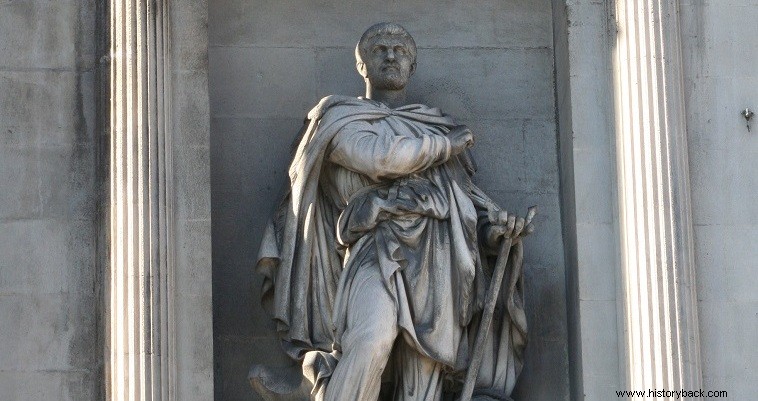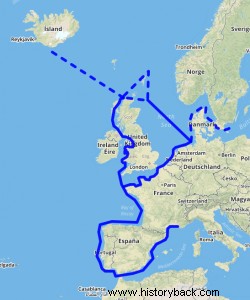
Pytheas the Massaliotis is one of the most unknown, but at the same time important personalities of the ancient world. He justifiably does not hold the title of explorer, since he was the first to sail in the unknown northern seas, reaching the island of Thuli, which researchers identify with today's Iceland.
Pytheas was born in the Greek city of Marseilles around the middle of the 4th century BC. There is no information related to his family and his life in general. He was rumored to be the son of a sailor himself.
Strabo, quoting passages from Pytheas' work, "Across the Ocean," states that Pytheas, before attempting his voyage of exploration to the North, had traveled throughout the Mediterranean and the Black Sea. We also do not know exactly when he attempted the trip, or his trips to the North, nor how he secured funding, and above all, neither the reasons that led him to undertake such a dangerous journey.
The great Greek mathematician Evangelos Stamatis argued that Pytheas made his journey around 330-320 BC. by order, but also financed by M.Alexandros. He based his theory on the finding of Greek coins from Cyrene in Libya in Brest in France.
The Polish researcher Knapowiski later argued that based on the astronomical and oceanographic evidence that survived from Pytheus' work "About the Ocean", through Strabo's "Geographies", the Greek explorer must have made two trips, one in 324 BC . and one in 322 BC
In the first, the Polish researcher always mentions, Pytheas sailed around the western Iberian coast, went up the North Sea and reached the Shetland Islands, north of Scotland. On his second voyage he reached Jutland and the Swedish coast. How far Pytheas actually got we will probably never know.
Strabo mentions that Pytheas had certainly sailed around Britain, even calculating the length of its coasts at 40,000 stadia (7,600 km approx.). also for the island of Thuli (=tholi, not sharp) Strabo conveys the information of Pytheus that "there was no land per se, nor sea, nor air, but what compared to these".
The Byzantine explorer Cosmas the Voyager of the Indies – who traveled as far as Malaysia in the 6th century AD. – also rescued a passage from the work of Pytheus, in which you mention that in Thuli the locals showed Pytheus the place where the sun “rested”. That's why in their homeland in the winter there was a continuous night!
Apparently Pytheas came very close to the arctic regions, where land, sea and air are hardly distinguishable, where the night lasts six months, perhaps guided by a much older knowledge. After attempting to explore the Norwegian coasts, he returned to his homeland, the Phocian city of Marseilles.
Both his works "Around the Ocean" and "Earth Period", unfortunately were not saved and he himself was slowly forgotten by the Greeks. However, he was not forgotten by the French, who have placed a statue of him at the entrance to the old port of Marseille, next to a plaque stating that this city, Marseille, was built by Greek colonists, from Phocaea in Ionia, in the 6th century e.g. transferring Greek culture to the reaches of the West.

Map of the possible route of Pytheas.
